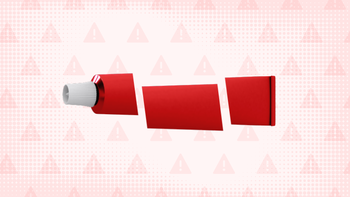
Retin-A
Retin-A (tretinoin) is a retinoid medication that's used to treat acne in adults and children 12 years and older. It's available as a cream or a gel that's applied onto the skin once a day. Side effects include skin irritation, redness, and peeling. Your acne might get worse at the beginning of treatment, but it should get better as you continue using the medication. You must have a prescription for Retin-A (tretinoin) from your primary care provider or dermatologist; this medication isn't available over the counter.

What is Retin-A (tretinoin)?
What is Retin-A (tretinoin) used for?
Acne
How Retin-A (tretinoin) works
Retin-A (tretinoin) is a retinoid. It's a form of vitamin A, a nutrient that helps keep your skin healthy by replacing your skin cells.
Retin-A (tretinoin) replaces your old skin cells with new skin cells. It also helps unclog pores in your skin that are plugged with dead skin cells and excessive oil. This helps treat acne and prevent more pimples from forming.
Drug Facts
More on Retin-A (tretinoin) essentials

Get your GoodRx coupon

What are the side effects of Retin-A (tretinoin)?
Common Side Effects
- Skin peeling or discomfort
- Warm feeling or stinging after applying
- Skin redness
- Sensitivity to sunlight (sunburns)
- Worsening of acne in the first few weeks of treatment
Other Side Effects
- Lighter or darker skin color
- Swelling of the skin
- Skin blisters
- Skin crusting
Serious Side Effects
- Allergic reaction: itchy, red rash (hives); shortness of breath; chest tightness; swelling of lips, tongue, or face; swelling around the eyes
Source: DailyMed
More on Retin-A (tretinoin) side effects
The following side effects have also been reported
Along with its needed effects, a medicine may cause some unwanted effects. Although not all of these side effects may occur, if they do occur they may need medical attention.
Check with your doctor immediately if any of the following side effects occur:
More common
Burning, stinging, peeling, redness, or unusual dryness of the skin (severe)
Less common
Dryness, pain, redness, irritation, or peeling at the application site
Some side effects may occur that usually do not need medical attention. These side effects may go away during treatment as your body adjusts to the medicine. Also, your health care professional may be able to tell you about ways to prevent or reduce some of these side effects. Check with your health care professional if any of the following side effects continue or are bothersome or if you have any questions about them:
More common
Burning, itching, stinging, scaling, or redness of the skin
chapping or slight peeling of the skin (mild)
darkening of the skin
lightening of normal skin color
lightening of treated areas of dark skin
redness of skin (mild)
unusual dryness of skin (mild)
unusually warm skin (mild)
Other side effects not listed may also occur in some patients. If you notice any other effects, check with your healthcare professional.
Call your doctor for medical advice about side effects. You may report side effects to the FDA at 1-800-FDA-1088.

Pros and cons of Retin-A (tretinoin)

Pros
Easy to apply onto your skin
Only need to apply once nightly
Available in a lower-cost generic form

Cons
Makes your skin more sensitive to sunlight, which can lead to sunburns
Can cause your skin color to temporarily become lighter or darker
Might worsen your acne during the first few weeks of treatment

Pharmacist tips for Retin-A (tretinoin)

It’s common for your acne to worsen during the first 3 to 6 weeks of using Retin-A (tretinoin). The medication is working in the deep layers of your skin, which can cause inflammation (swelling) and new pimples to form. Don't feel discouraged and continue to use Retin-A (tretinoin). Talk with your dermatologist if you're concerned.
You might feel a warm or slightly stinging sensation when you apply Retin-A (tretinoin) to your skin. This is normal, but tell your dermatologist if it's too bothersome. You might have to temporarily stop the medication or use it less often.
You might notice peeling and skin discomfort when you first start Retin-A (tretinoin), but it usually goes away within 2 to 4 weeks. Your skin color might also become lighter or darker, but it should go back to normal with time or once you stop using the medication.
Avoid washing your face too often and scrubbing your face too hard while you're using Retin-A (tretinoin). Use mild, gentle, non-medicated soap to wash your face 2 to 3 times per day. Then, gently dry your skin with a towel. This protects your skin from irritation and dryness.
Apply a mild moisturizer or a moisturizer with sunscreen every morning after you wash your face. This helps protect your skin from damage and dryness while you're using Retin-A (tretinoin).
Avoid soaps, shampoos, and other personal care products that are medicated or hard on the skin (abrasive). Also avoid products that contain drying agents (e.g., alcohol, spices, lime), sulfur, resorcinol, or salicylic acid. If you have to use these products, be sure to "rest" your skin before you use Retin-A (tretinoin). Ask your dermatologist about which products are safe to use with Retin-A (tretinoin).
Store Retin-A (tretinoin) at room temperature and away from heat (especially the gel, since it’s flammable). Keep the medication tightly closed and out of reach from children.
How to use Retin-A (tretinoin):
Gently wash and pat dry your skin. Wait 20 to 30 minutes for your skin to completely dry before you apply Retin-A (tretinoin).
Place about a half-inch or less of Retin-A (tretinoin) onto your fingertip. Lightly dab it onto your forehead, chin, and both cheeks. Then, spread the medication over your entire face so it becomes a thin layer.
Try not to get Retin-A (tretinoin) near the corners of your nose, mouth, eyes, and any open wounds. These areas might get irritated.
The half-inch amount of Retin-A (tretinoin) should be enough to cover your entire face. As you continue to use the medication, you can adjust how much you need. You’ll know you’re using too much if the medication doesn’t disappear into your skin right after you rub it in.
Don't use Retin-A (tretinoin) more than once per day. It won't make the medication get rid of your acne any faster or better. Instead, using it more often than prescribed can cause serious skin irritation. You'll also probably waste the medication.
More on Retin-A (tretinoin) tips

Frequently asked questions about Retin-A (tretinoin)

How to save using GoodRx




What are the risks and warnings for Retin-A (tretinoin)?
Retin-A (tretinoin) can cause some serious health issues. This risk may be even higher for certain groups. If this worries you, talk to your doctor or pharmacist about other options.

Sunburns
Risk factors: High levels of sun exposure | Having skin that burns easily | Living in a hot climate | Working outdoors
Using Retin-A (tretinoin) can make your skin more sensitive to both natural sunlight and artificial sunlight from sunlamps. This can cause your skin to burn more easily. Having skin that's more sensitive to light might also raise your risk of early aging of the skin or skin cancer.
It's important to protect your skin from sunlight by finding shade outdoors, using sunscreen when you're outside (even on cloudy days), and wearing sun-protective clothing (like hats). Also avoid using sunlamps. Ask your primary care provider or dermatologist about which SPF (sun protection factor) level of sunscreen will protect you best. Stop using Retin-A (tretinoin) until your skin fully heals if you get sunburned.

Skin irritation in extreme weather
Risk factors: Being in cold or windy climates
Extreme climates, like too cold or too windy weather, can make your skin get too dry or cause skin burns. Using Retin-A (tretinoin) can make your skin more sensitive to these weather conditions, leading to even more skin irritation. If you live somewhere very cold or windy, ask your primary care provider or dermatologist about ways for you to better manage and treat your acne.

Skin reactions
Risk factors: Sensitive skin | Eczema
If you have sensitive skin, Retin-A (tretinoin) might cause excessive skin redness, blisters, swelling, and crusting. Stop using the medication until your skin heals if your skin irritation doesn't go away. Discuss with your primary care provider or dermatologist to see whether you need to use Retin-A (tretinoin) less often so that you can tolerate it better or whether you need a different medication.

Retin-A (tretinoin) dosage forms
Typical dosing for Retin-A (tretinoin)
Use Retin-A (tretinoin) cream or gel once daily, usually before bedtime. Lightly cover all areas of your skin that have pimples, acne spots, or bumps with a thin layer of the cream or gel.
If you have sensitive skin, you might need to use Retin-A (tretinoin) every other night.

Interactions between Retin-A (tretinoin) and other drugs
More on Retin-A (tretinoin) interactions
Although certain medicines should not be used together at all, in other cases two different medicines may be used together even if an interaction might occur. In these cases, your doctor may want to change the dose, or other precautions may be necessary. Tell your healthcare professional if you are taking any other prescription or nonprescription (over-the-counter [OTC]) medicine.

How much does Retin-A (tretinoin) cost?

What are alternatives to Retin-A (tretinoin)?
Acne - 0.1% strength only
Plaque psoriasis - 0.05% and 1% strengths

What is the latest news about Retin-A (tretinoin)?

Retin-A (tretinoin) images
Get savings updates for Retin-A (tretinoin)
Receive price alerts, news, and other messages from GoodRx about Retin-A (tretinoin) and other healthcare topics and relevant savings offers.By signing up, I agree to GoodRx's Terms and Privacy Policy, and to receive marketing messages from GoodRx.
References
Best studies we foundMotamedi, M., et al. (2022). A clinician’s guide to topical retinoids. Journal of Cutaneous Medicine and Surgery.
Mukherjee, S., et al. (2006). Retinoids in the treatment of skin aging: An overview of clinical efficacy and safety. Clinical Interventions in Aging.
Padagis US LLC. (2023). Tretinoin gel; cream [package insert]. DailyMed.
Sitohang, I.B.S., et al. (2022). Topical tretinoin for treating photoaging: A systematic review of randomized controlled trials. International Journal of Women's Dermatology.
Compare other Acne drugs
Browse medications
View AllResearch prescriptions and over-the-counter medications from A to Z, compare drug prices, and start saving.

















